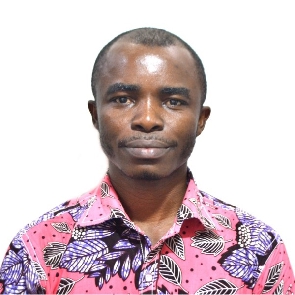It is indeed welcoming news that the oldest Public Health Training Institution in Ghana, the Accra School of Hygiene has commenced a Bachelor of Science degree in Environmental Health and Sanitation after training Diploma holders in Environmental Health for the government sector in 1925, following accreditation by the Ghana Tertiary Education Commission (GTEC) and affiliation to the University of Cape Coast, and with the Allied Health Professions Council
granting professional accreditation.
The news is particularly refreshing as Ghana continues to face significant challenges in the area of access to clean water and sanitation which are
necessities for our very survival on the earth and for the promotion of good health and longevity. Whether Ghana, just like other struggling developing countries will be able to meet the seventeen (17) Sustainable Development Goals (SDGs) by the year 2030 or not, remains a concern to governments, organizations, and individuals alike. Particularly, there is no doubt that amidst strenuous efforts by the government which for instance led to the establishment of the Ministry of Sanitation and Water Resources (MSWR), there is more work to be done to solve challenges related to sanitation, continuous access to clean water and health in the Ghana.
However, efforts aimed at addressing SDG 6, which aims to ensure the availability and sustainable management of water and sanitation for everyone, whether in the village, town or city will eventually impact positively on the remaining 16 SDGs. While poor sanitation and lack of access to clean water a known causes of many diseases, poor health can lead to poverty and hunger when families spend all their earnings on restoring health. Poverty resulting from ill health negatively affects children’s education which could lead to the exploitation of the girl-child into risky sexual behaviours resulting in teenage pregnancy and school dropouts, thus, widening the gap of gender equality.
The aforementioned indicates how SDG 6 is intertwined with SDGs 1, 2, 3, 4 and 5
which seek to address issues of poverty, hunger, good health and well-being, quality education, and gender equality respectively.
It is said, that the most important resource of any institution is their human resource. Thus, the introduction of the BSc. Environmental Health and Sanitation at the Accra School of Hygiene which is aimed at training competent professionals to promote hygiene, sanitation, and health in all facets of the country’s architecture is welcoming news and a boost to the attainment of the
SDGs and improvement in health in Ghana. While this presents an opportunity for SHS graduates to be admitted and professionally trained to add up to the number of professionals employed by the state and other private sectors, it remains a golden opportunity for practicing Environmental Health Professionals with Certificate and Diploma as well as non-professional degrees to boost their capacity to contribute meaningfully in the sector.
On this note, while commending the government of Nana Addo Dankwa Akufo-Addo, the MSWR, various stakeholders, and the Management of the school for attaining this historic foot, I would also encourage Regional Coordinating Councils (RCCs), Metropolitan, Municipal and District Assemblies (MMDAs), Ministries, Departments, and Agencies (MDAs) as well as private sector players, especially, the Coalition of NGOs in Water, Sanitation, and Hygiene (CONIWAS) and Environmental Service Providers Association (ESPA) to encourage, sponsor and facilitate admission of practicing Officers in their organizations into the program to develop their capacity as well as partner with and provide the needed support to this important state institution to contribute at full capacity towards the development of our nation for the present generation and posterity.
Indeed, the introduction of the BSc. Environmental Health and Sanitation Programme at the Accra School of Hygiene to train competent Environmental Health Professionals who are also mandated to enforce the sanitation laws of Ghana is a giant step and an indication of a commitment to achieving our sanitation goals as a country. Sanitation is not one man’s business; sanitation is everyone’s business.
Opinions of Monday, 4 December 2023
Columnist: Mathias Mawuli Ametefe
Historic BSc. Environmental Health and Sanitation at Accra School of Hygiene - A panacea to Ghana’s sanitation problems?
Entertainment














